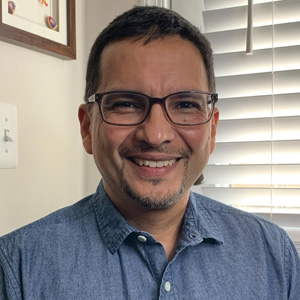
MEDITATION ON ISAIAH 61:4-9 – God Still Promises to Restore
by Pablo Hernandez
Former Pastor of Iglesia Esperanza de Vida, Harrisonburg, Va.
They will rebuild the ancient ruins and restore the places long devastated; they will renew the ruined cities that have been devastated for generations. Strangers will shepherd your flocks; foreigners will work your fields and vineyards. And you will be called priests of the Lord, you will be named ministers of our God. You will feed on the wealth of nations, and in their riches you will boast.
—Isaiah 61:4-9
This passage contains, without a doubt, one of the most beautiful restoration promises in all of scripture. Faced with the reality of the ashes, ruin and discouragement, God raises his voice and announces a new time for his people. A time of renewal and encouragement. These five verses show us powerful affirmations of what God can do for his children when they face extremely painful, dangerous, and uncertain situations.
During the last few months we have gone through a pandemic that, in one way or another, has affected our lives and in some cases has produced pain and uncertainty. It is good to know that we have the same God as Isaiah. The same God who made these amazing promises is the same God who daily hears our prayers and dwells in our hearts.
Regarding God’s promise, I would like to highlight the verbs used here: rebuild, restore, renew, shepherd, work, feed, receive, rejoice, inherit, and acknowledge. This is a wonderful promise that cannot be separated from the beginning of this chapter. The first three verses of this passage have to do with the work of the Spirit of God in his anointed one who is sent to announce that the time of despair had been fulfilled and that, as a product of divine initiative, new times would be fulfilled for the children of God. The extraordinary promise of verses 4-9 must be seen as a result of God’s liberating work in announcing Good News of redemption for a disgraced people.
Unfortunately, I have been able to see the havoc it causes on the faith of many when this passage is taken out of context and proclaimed as the opportunity, we must extract the best of God without compromise. A God whose purpose is to see us prosper and free us from the slightest problem in life. Yes, God longs for our good. He promises better times, but he never promised restoration without a certain amount of suffering. Israel suffered captivity to perhaps realize that God walked with them even when they lived in a strange land, under the oppressive yoke of those who dominated them. God was always there, loving them despite their stubbornness and inviting them to turn to Him with their hearts. At his time, he kept his promise and gave them his best. He gave himself in the person of the promised Messiah.
We all know that Jesus, at the beginning of his ministry on this earth, quoted this passage in his visit to the synagogue, but he not only quoted it, but he also made it his own. He embodied it. Something that no one had dared to do until that moment.
After reading this chapter of Isaiah he said something else that made a great impact: “Today this scripture is fulfilled in your hearing” (Luke 4:21). It turns out, then, that the centuries-long awaited prophecy was now a reality in the person of a humble carpenter from Galilee. God became man and dwelt among us not to boast of his infinite power but to become one of us and tell us face-to-face that the time of shame has passed. That now, in his person, a new story can be written in our life. It is without a doubt the best news we could have received!
I’ve lived long enough to realize that even good news are not always welcome. Or perhaps, if they are well received at the beginning but when they are accompanied by a cross, they seem to lose their charm. Jesus came to this world to reflect divine love to fallen humanity and to reach out a restorative hand to hopelessly lost people. If Jesus had not quoted this passage, it is highly likely that many would have thought that it was promises only applicable to Israel. But Jesus came into the world, he came to all, he loved us all, he gave himself as the perfect cure to our disease called sin, from which generational misfortunes such as injustice, oppression, corruption, selfishness, prejudices, racism, lies, and inequality arise.
I have been asked how this passage resonates in my cultural context and my answer is always the same: it resonates in the same way as in any other context. We have broken people everywhere, governments corrupted by loving money, people suffering from lack of housing, food, health, or access to the basic things of life. People who do not want to know anything about God, others who seek to follow Jesus but do it in their own way, embracing the blessings and refusing to live faithfully to Him.
It resonates the same in my Honduras, a beautiful nation that is facing one of its darkest times in its history due to corruption at all levels, inequality, crime, and injustice, just as it resonates in the United States and anywhere on the planet. Honestly, we will realize that we are all broken by the same evil and we are all offered the same medicine that can heal the soul, change pain for dance, and establish the genuine shalom that God has promised to those who love him. This is the message we urgently must convey. The pandemic eventually is going to finish but we will still be dealing with a spiritual COVID that can kill us subtlety, poisoning our being, like in the beginning.
I must also admit that I have found in these verses a more precise definition of what service to God is, or what we call “ministry” is. Both words, gospel and ministry, come together and I think they work together like this:
When the gospel of Christ fills our hearts and changes us, we are reborn to a new hope. We are also driven to see our neighbor as the extension of God’s love for us. And God works mightily restoring the destroyed, healing the wounds, providing for the dispossessed. The church has the mission of bringing the words of Isaiah 61 to life. But a mission focused on him, to glorify him to honor him, to obey him, even though we suffer rejection or underestimation. In living like this we will find what a real restoration is.
May the Lord allow us, who by his grace and mercy serve him, to be spokespersons and an example of such a powerful message. That passages like Isaiah 61 and Luke 4 not only serve for theological discussions but also to identify ourselves with the heart of our Messiah and be like Him without fear in the middle of difficult times.
This article is from a meditation given to Virginia Mennonite Conference delegates at the virtual Conference Assembly, June 12, 2021, and was subsequently published in the Summer 2021 issue of Pathways.
